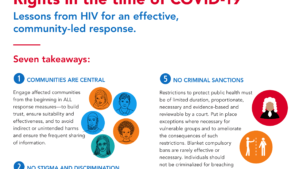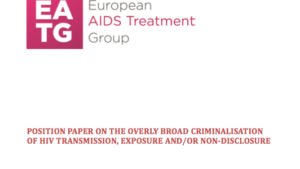Overview
There are no HIV-specific provisions in Hungary, however general harm provisions have been used to prosecute HIV ‘exposure’ and transmission.
Section 164 of the Criminal Code governs the offence of assault and battery, defined as the causing of bodily harm, which can result in a penalty of one to five years’ imprisonment in aggravated cases which includes where ‘permanent disability or serious impairment of health’ is caused. This provision has been applied in cases of ‘exposure’ and transmission, by sexual and non-sexual means.
Since the first publicly recorded case in 1994 – which did not result in any charges being brought – proceedings have been initiated against at least four men living with HIV for alleged transmission. Two of these cases resulted in convictions, while the other two failed due to lack of evidence. AIDS Action Europe’s 2023 report, HIV Criminalisation in the EU, contains some details about these convictions:
-
- In 2008, a man was convicted of causing bodily harm resulting in serious impairment of health (section 164(6)) after allegedly transmitting HIV to his wife and ex-partner. He received a sentence of 10 months’ imprisonment.
- In 2009, a man spat bloody saliva onto the face of a security guard, who reportedly swallowed it, after an altercation. Although transmission did not occur, the man was convicted of attempt to cause bodily harm resulting in serious impairment of health for the perceived ‘exposure’. The sentence is not known.
In addition, Hungary’s Healthcare Act of 1997 has some provisions that could apply to people living with HIV including mandatory disclosure of HIV status in healthcare settings and mandatory partner notification. However, there have been no prosecutions for not doing so.
Laws
Criminal Code
Section 164. Assault and battery
(1) Whoever injures the physical integrity or health of another commits assault.
(…)
(5) The penalty shall be imprisonment for a term of one to five years if the slight bodily injury causes permanent disability or serious impairment of health.
(6) The penalty shall be imprisonment for a term of one to five years if the grievous bodily harm
(…)
(d) causing permanent disability or serious impairment of health,
(…)
(7) A person who commits a preparation to commit an offence specified in subsection (3) or (6) shall be punishable as a misdemeanour with imprisonment for a term of up to one year.
(8) The penalty shall be imprisonment for a term of two years to eight years if the assault causes danger to life or death.
The Healthcare Act of 1997
Under the obligations of the patients part (Paragraph 26 (2)) states that: “If allowed by his state of health, a patient shall cooperate with the health care workers involved in his care according to his abilities and knowledge, as follows:
(…)
(b) inform them of every detail in connection with his illness which may endanger the lives or physical safety of others, in particular, of any communicable diseases, and of illnesses and conditions disqualifying him from pursuing an occupation,
(c) in the case of communicable diseases set forth in the relevant decree of the Minister of Health, name the persons from whom he may have contracted the communicable disease and whom he may have infected…
Acknowledgements
HIV Justice Network's Positive Destinations
Visit the Hungary page on Positive Destinations for information on regulations that restrict entry, stay, and residency based on HIV-positive status, as well as access to HIV treatment for non-nationals.

